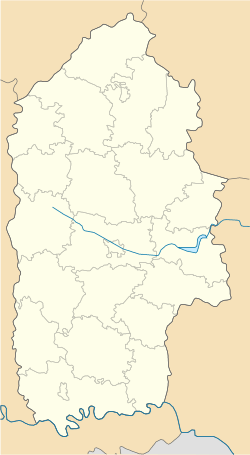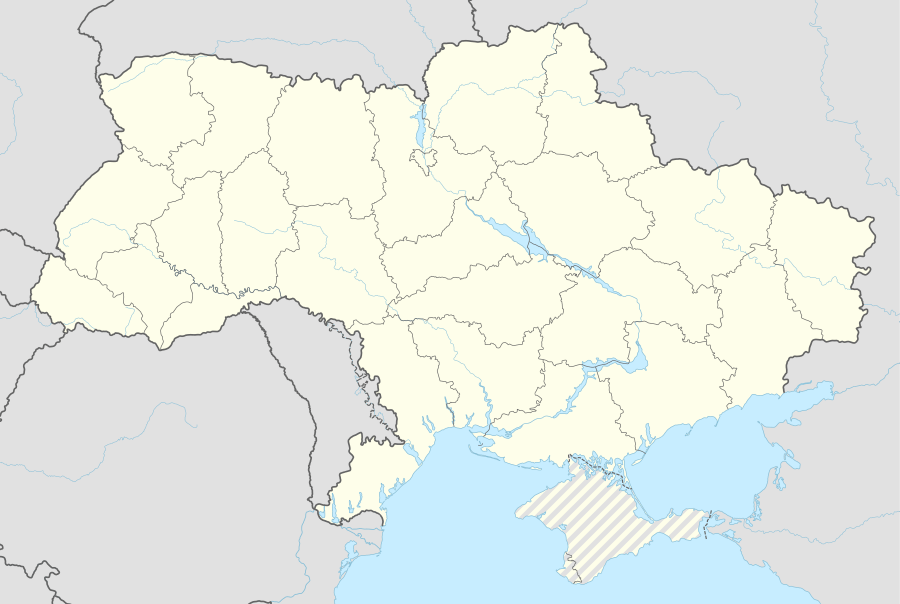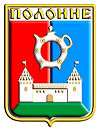Polonne
| Polonne Полонне | |||
|---|---|---|---|
| City | |||
_%D0%9F%D0%BE%D0%BB%D0%BE%D0%BD%D0%BD%D0%B5.jpg) St. Anne Church in Polonne | |||
| |||
 Polonne  Polonne | |||
| Coordinates: 50°07′12″N 27°30′28″E / 50.12000°N 27.50778°ECoordinates: 50°07′12″N 27°30′28″E / 50.12000°N 27.50778°E | |||
| Country |
| ||
| Oblast |
| ||
| First mentioned | 996 | ||
| Population (2001) | |||
| • Total | 23,211 | ||
Polonne (Ukrainian: Полонне) is a city on the Khomora River in the Khmelnytskyi Oblast (province) of western Ukraine. It is the administrative center of the Polonne Raion (district), and is located at around 50°7′0″N 27°31′0″E / 50.11667°N 27.51667°E.
The current estimated population is around 23,211 (as of 2001).
Polonne is situated on the Shepetivka-Berdychiv railroad line. Various industries within the city include porcelain, ceramic.
History
Polonne has been known at least since 996, when it was first mentioned as a taxation subject in relation to Prince Volodymyr the Great's Desyatynna Church. Throughout the Middle Ages Polonne was known by its castle, also enjoying Magdeburg Rights. In 1648 almost 10,000 Jews (including the well-known Samson ben Pesah Ostropoli) who had taken refuge within the town's walls were massacred by the troops of Bogdan Chmielnitsky.
In Modern times received city status since 1938.
The Jewish population was important in the town. During World War II, the Germans occupied the town kept the Jews imprisoned in a ghetto. They were guarded by Ukrainian policemen and had to do slave labor. In 1941 and 1942, hundreds of Jews are murdered in mass executions perpetrated by an Einsatzgruppe.[1]
Famous people
Peretz Markish, famous poet was born in Polonne in 1895. A museum is dedicated to him in the old synagogue. The Canadian sculptor Leo Mol was born in Polonne in 1915.
Gallery
_%D0%9F%D0%BE%D0%BB%D0%BE%D0%BD%D0%BD%D0%B5.jpg) Polonne fortress
Polonne fortress Old water mill
Old water mill- Lesia Ukrainka's house
References
- ↑ http://www.yadvashem.org/untoldstories/database/index.asp?cid=779 The murder of the Jews of Polonne
External links

